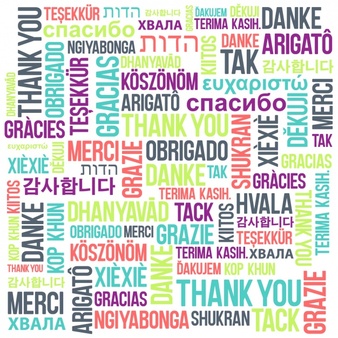October 15, 2017 by TEODORA ZAREVA on big think Have you ever stayed up all night, cramming for exams, practicing two of the worst ways to study, namely, 1) consuming a large amount of information at once on a 2) lack of sleep? Me too. Wouldn’t it have been nice if we were taught not only what to study but also how

Test Your German Level – for Free!
How good is your German? You’ve already acquired German skills and would like to refresh or deepen them? You don’t know which language course (at which level) is the right one for you? Find out how good your German is, by taking a free German entry-level test online! And check the Free German trial version – on the upper right

More about Learning with Flashcards
The Flashcard Method This method is used to efficiently anchor new vocabulary in your long-term memory. While there are online courses and software that offer this method for language learning, you can also apply it using simple means at home. You need: cards on which you can write words / short phrases on both sides a box that can be

How – and What – do We Learn Most Quickly?
We learn the things that truly interest us most quickly People learn new information and store it most efficiently in the long-term memory, if information is combined with topics that engage them. This is because our subconsciousness prioritizes the storage of information, and our subconscious reacts to information rather emotionally than rationally. For example: An ardent football fan can often
Intensive Language Seminar
Language Training with me! Although I also offer tutoring for students, I specialize in intensive language training seminars (minimal 3 full days) with the goal of at least 100 vocabulary words / phrases per day. I get results applying a combination of – Alpha State vocabulary training – Suggestopedia – NLP The core of my language training seminar consists of
Approaches to Reading Comprehension
Books, magazines, newspapers are available everywhere and are inexpensive tools. A lot of reading material – often with translations for selected vocabulary – is available on the Internet – often for free! Getting started You should, of course, start out simply if you are a beginner in the target language. You can find perhaps a children’s story or fairytale –
What could a Language Self-Study Plan look like?
A – Set yourself a minimum goal of 7 (seven) new words or short phrases a day 1 -You can start by doing a Internet search of the 100 or 1,000 most common words in a language and compile a list. I did this for Spanish: I found a number of sites. I copied the lists onto Microsoft Word (for
A Learning Method for Vocabulary – Index Cards
A method for anchoring vocabulary in your long term memory You need index cards (or something similar), a drawer or box that you can divide into compartments for holding the cards. Every day you will want to begin with 7 new words / phrases (see „Rule of Seven„). Start writing vocabulary cards – target language on one side, native language
Report – Learning Turkish
Due to a professional assignment in Turkey, I have been learning Turkish words and phrases, primarily using 17-Minute Languages as my training tool. When I normally approach a new language, I set out to learn grammar very early. I tend to be analytical with a language, and since the other languages I have learned (French, Italian, Spanish) are grammatically similar,
The Learning-by-Association Method
How you can shorten your learning time by two-thirds with the Learning-by-Association Method The Learning-by-Association Method can be combined with all other learning methods. In test series, subjects were able to learn from 30 to 50 new words per hour with this method. The learning time per vocabulary word was shortened by 50 to 70 percent. Following the Learning-by-Association Method,
